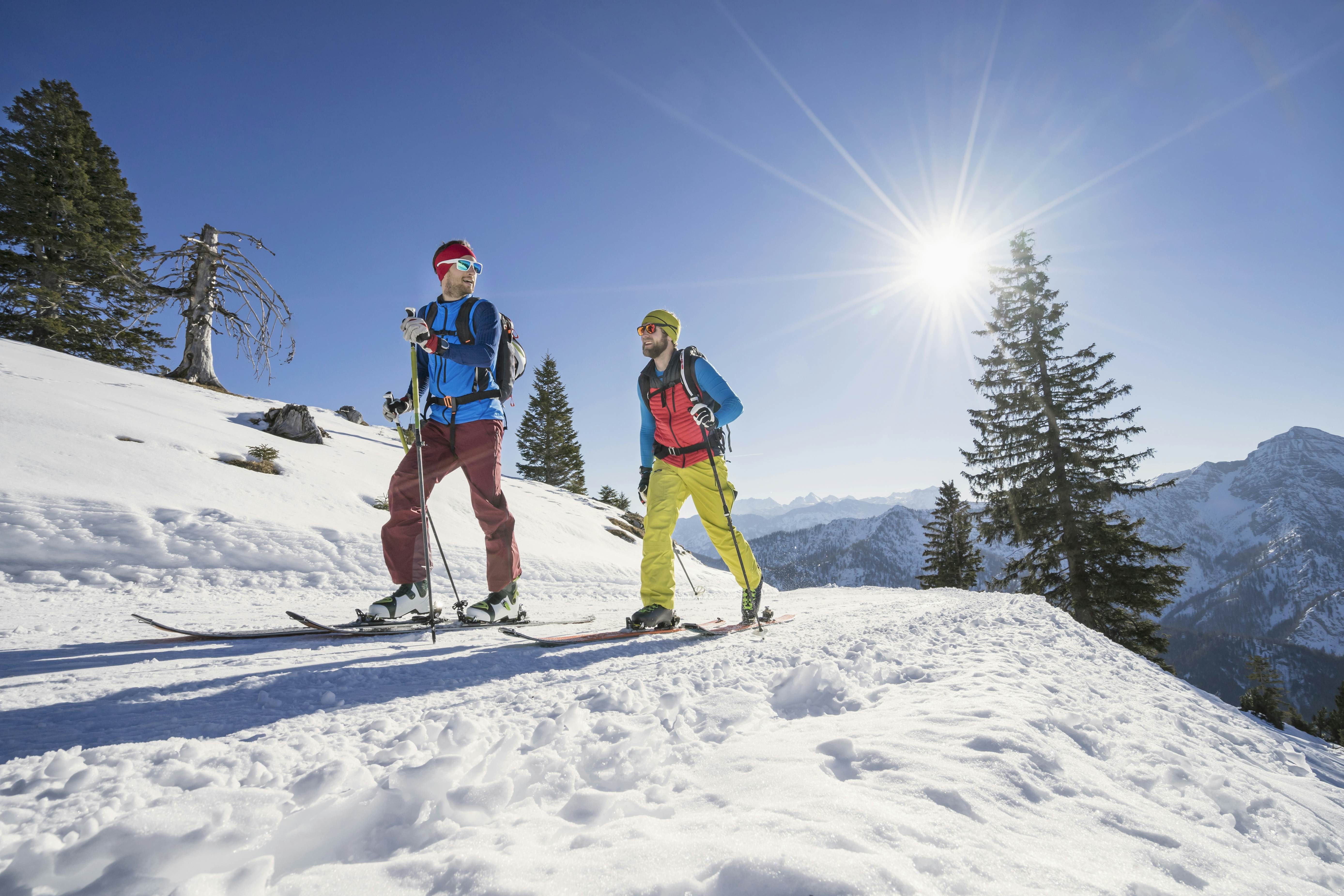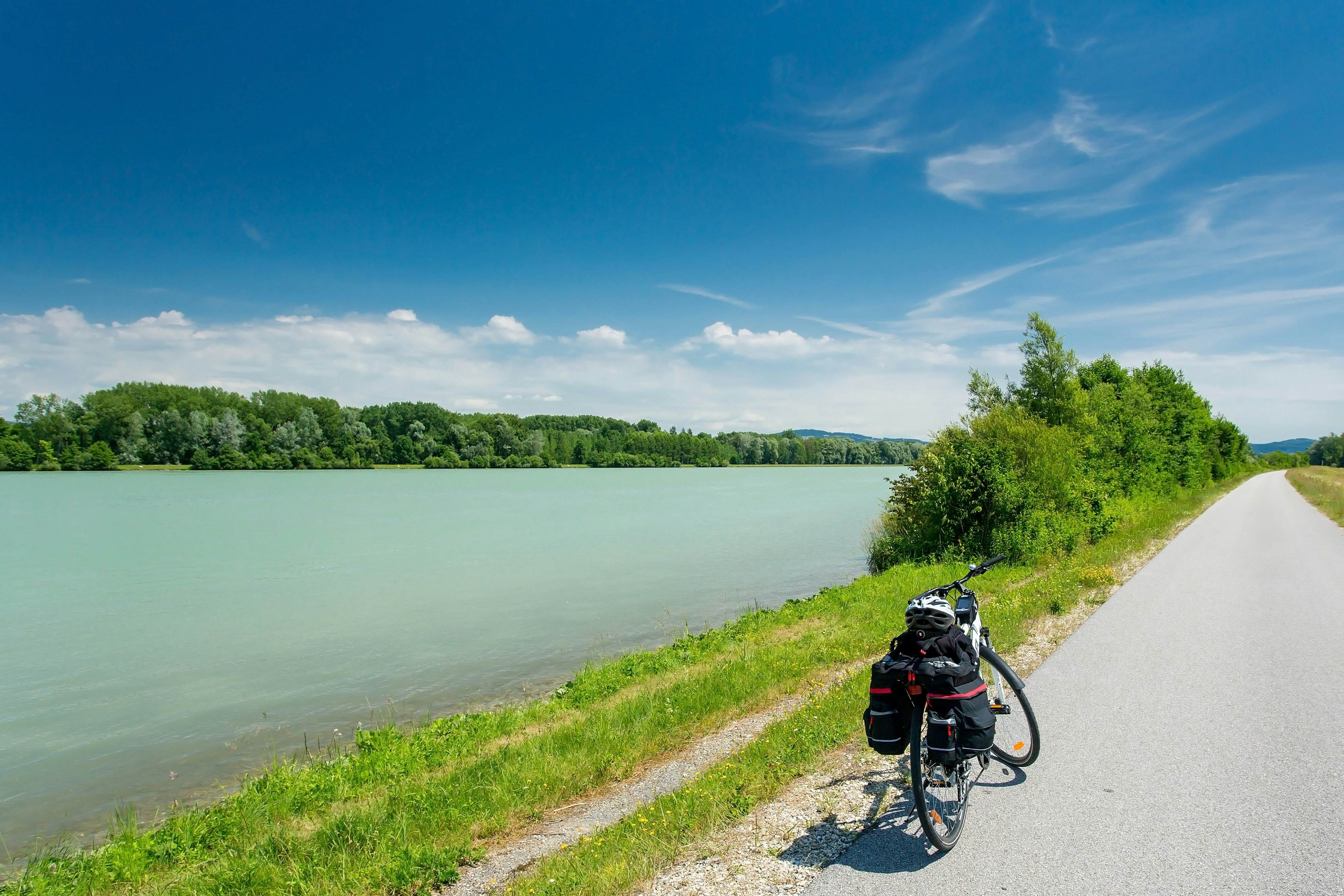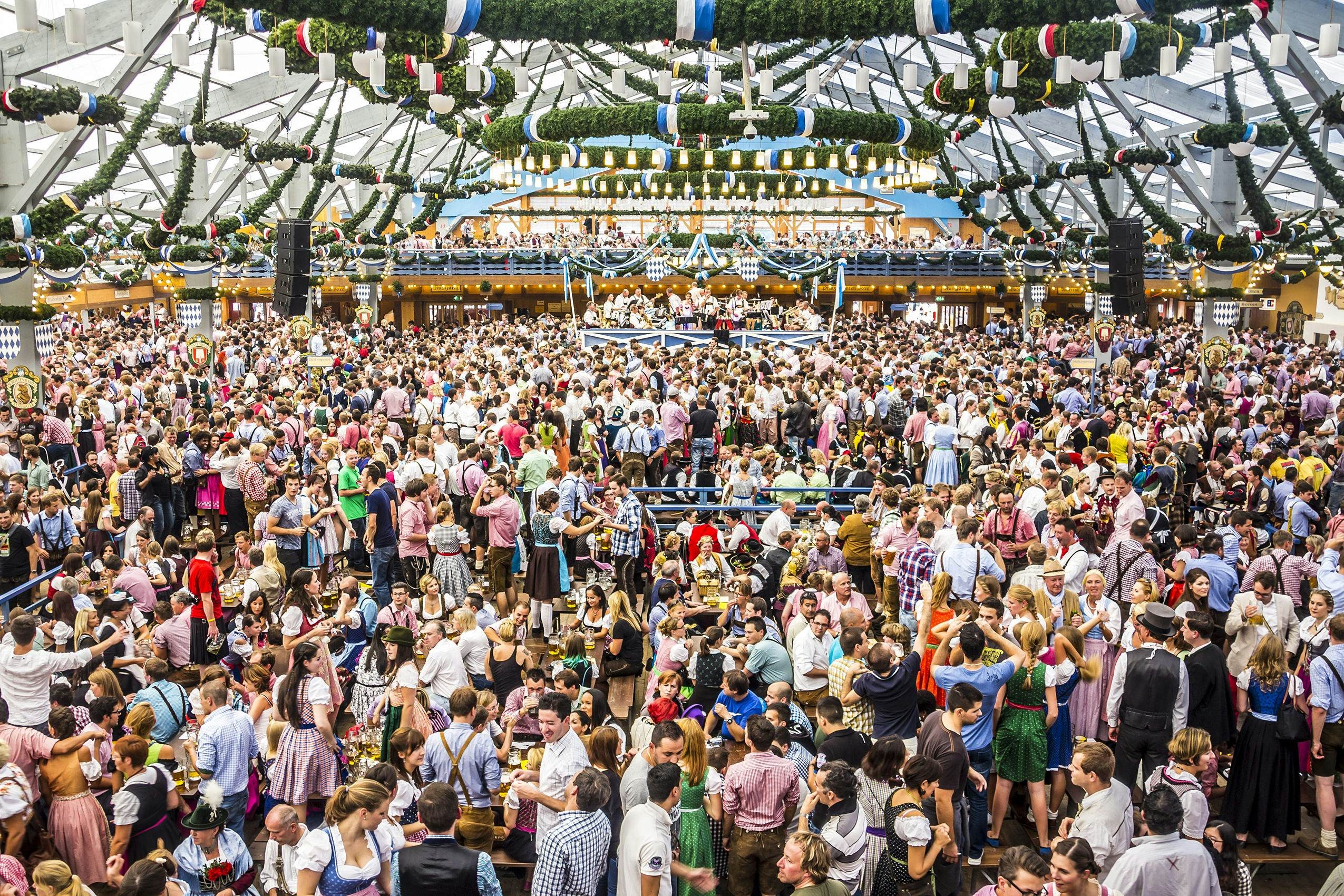Germany, a land of vibrant culture and stunning landscapes, offers unique experiences throughout the year. Determining the Best Time To Travel To Germany depends on your priorities. SIXT.VN is here to guide you through Germany’s seasonal highlights, ensuring you discover the ideal time for your dream vacation. Let’s unlock the secrets of Germany’s seasonal charm.
1. What is the Overall Best Time to Visit Germany?
The best time to visit Germany is generally from May to September. During these months, the weather is warm and sunny, perfect for outdoor activities, sightseeing, and experiencing Germany’s many festivals. According to a report by the German National Tourist Board in 2023, summer months see the highest number of tourists due to favorable weather and numerous cultural events.
Expanding on this, Germany transforms into a vibrant destination during the warmer months. Whether you’re interested in exploring historic cities, hiking in the Bavarian Alps, or simply enjoying the lively atmosphere of outdoor cafes, the summer season provides ideal conditions. The extended daylight hours allow for more sightseeing, and the numerous festivals offer a chance to immerse yourself in German culture.
2. When is the Best Time for Warm Weather in Germany?
For warm weather, May to September is your best bet. July and August are typically the hottest months, but be prepared for occasional thunderstorms and rain showers. This aligns with the peak tourist season.
During these months, the average temperatures range from 20°C to 25°C (68°F to 77°F), making it ideal for outdoor activities. Cities like Berlin, Munich, and Hamburg come alive with open-air concerts, beer gardens, and street festivals. Coastal regions along the North and Baltic Seas are also popular destinations for beachgoers and water sports enthusiasts. According to weather data from the German Meteorological Service, July is typically the warmest month, with an average high of 24°C (75°F).
3. When is the Best Time for Budget Travel to Germany?
If you’re on a budget, consider visiting Germany during the shoulder seasons: March to May and October to November. The weather can be unpredictable, but accommodation rates are lower and popular attractions are less crowded.
Traveling during these months offers a unique opportunity to experience Germany without the peak-season crowds. You’ll find better deals on flights and accommodations, and popular sights will be less congested. While the weather may be cooler and wetter, it’s still possible to enjoy outdoor activities with the right clothing. Additionally, many cities offer indoor attractions, such as museums, art galleries, and historical sites, providing plenty of options for exploration.
4. When is the Best Time for Christmas Markets in Germany?
December is the perfect time to visit Germany for Christmas markets. These festive markets, offering mulled wine and traditional treats, are a highlight of the holiday season.
The German Christmas markets are a magical experience, with twinkling lights, festive decorations, and the aroma of gingerbread and mulled wine filling the air. Cities and towns across Germany host these markets, each offering its own unique charm and traditions. Nuremberg and Dresden are particularly famous for their Christmas markets, attracting visitors from around the world. However, be prepared for larger crowds and higher accommodation rates during this time.
 Christmas themed aachener printen- lebkuchen. They are similar to gingerbread, originally sweetened with honey, but for two centuries the tradition is to use a syrup made from sugar beets.
Christmas themed aachener printen- lebkuchen. They are similar to gingerbread, originally sweetened with honey, but for two centuries the tradition is to use a syrup made from sugar beets.
5. When is the Best Time for Skiing in Germany?
The best time for skiing in Germany is from January to March. The Bavarian Alps offer excellent skiing opportunities, with resorts like Garmisch-Partenkirchen being popular choices.
The Bavarian Alps provide a stunning backdrop for winter sports enthusiasts, with a variety of ski resorts catering to all skill levels. In addition to downhill skiing, you can also enjoy cross-country skiing, snowboarding, and snowshoeing. The region is easily accessible from Munich, making it a convenient destination for a winter getaway. However, be aware that some smaller towns and attractions may have limited opening hours during the winter months.
 Two men in the Bavarian alps ski trekking
Two men in the Bavarian alps ski trekking
6. What is the Weather Like in Germany Throughout the Year?
Germany experiences distinct seasons, each offering unique weather conditions:
- Spring (March to May): Temperatures gradually rise, with average highs ranging from 10°C to 20°C (50°F to 68°F). Expect occasional rain showers and blooming flowers.
- Summer (June to August): Warm and sunny, with average highs ranging from 20°C to 25°C (68°F to 77°F). July and August are the hottest months, but thunderstorms are possible.
- Autumn (September to November): Temperatures cool down, with average highs ranging from 10°C to 15°C (50°F to 59°F). Expect colorful foliage and occasional rain.
- Winter (December to February): Cold and snowy, with average highs ranging from 0°C to 5°C (32°F to 41°F). Snowfall is common, especially in the Alps and mountainous regions.
7. What Are the Key Festivals and Events in Germany Throughout the Year?
Germany hosts a wide range of festivals and events throughout the year, catering to diverse interests:
- Oktoberfest (September-October): A world-famous beer festival in Munich, featuring traditional Bavarian food, music, and of course, beer.
- Christmas Markets (November-December): Festive markets held in cities and towns across Germany, offering mulled wine, traditional treats, and handcrafted gifts.
- Carnival (February-March): Celebrations held in cities like Cologne, Düsseldorf, and Mainz, featuring colorful parades, costumes, and parties.
- Berlin International Film Festival (February): A major film festival showcasing international films and attracting filmmakers from around the world.
- Rhine in Flames (May-September): Spectacular firework displays held along the Rhine River, accompanied by music and festivities.
8. How Does the Region Affect the Best Time to Visit Germany?
Germany’s diverse geography and climate mean that the best time to visit can vary depending on the region:
- Bavaria: The best time to visit Bavaria is during the summer months (June to August) for hiking and outdoor activities, or during the winter months (January to March) for skiing.
- Berlin: Berlin is a year-round destination, but the best time to visit is during the spring (April-May) or autumn (September-October) for pleasant weather and fewer crowds.
- Rhine Valley: The Rhine Valley is best visited during the late summer and early autumn (August-September) for wine festivals and scenic river cruises.
- North Sea Coast: The North Sea Coast is best visited during the summer months (June to August) for beach holidays and water sports.
9. How Can SIXT.VN Help Plan My Trip to Germany?
SIXT.VN offers a range of services to help you plan your perfect trip to Germany:
- Airport Transfers: Enjoy a seamless arrival and departure with our reliable airport transfer services.
- Hotel Booking: Choose from a wide selection of hotels to suit your budget and preferences.
- Tour Packages: Explore Germany’s top attractions with our expertly designed tour packages.
- Flight Booking: Find the best deals on flights to Germany.
- Customized Itineraries: Let our travel experts create a personalized itinerary based on your interests and preferences.
According to customer feedback, SIXT.VN provides exceptional customer support, making your trip planning stress-free.
10. What are Some Tips for Traveling to Germany During Different Seasons?
- Spring: Pack layers, as the weather can be unpredictable.
- Summer: Bring sunscreen, a hat, and comfortable shoes for walking.
- Autumn: Pack a jacket and umbrella, as rain is common.
- Winter: Dress warmly in layers, and wear waterproof shoes.
11. What Are Some Popular Tourist Destinations in Germany?
Germany boasts a wealth of attractions, catering to various interests. According to the German National Tourist Board, the following destinations are among the most popular:
- Neuschwanstein Castle: A fairytale castle nestled in the Bavarian Alps, inspiring Walt Disney’s iconic castles.
- Cologne Cathedral: A magnificent Gothic cathedral, a UNESCO World Heritage Site, renowned for its stunning architecture and historical significance.
- Brandenburg Gate: A historic landmark in Berlin, symbolizing German reunification, a must-see for any visitor to the capital.
- The Black Forest: A picturesque region in southwestern Germany, known for its dense forests, charming villages, and traditional cuckoo clocks.
- Romantic Road: A scenic route through Bavaria, showcasing medieval towns, castles, and vineyards, offering a glimpse into Germany’s rich history and culture.
12. What Kind of Traveler Are You?
- Culture Seeker: If you’re interested in history, art, and culture, the best time to visit Germany is during the spring or autumn, when you can explore museums and historical sites without the crowds.
- Nature Lover: If you enjoy hiking, cycling, and outdoor activities, the summer months offer the best weather conditions for exploring Germany’s natural beauty.
- Budget Traveler: If you’re on a budget, consider visiting Germany during the shoulder seasons (March-May and October-November) for lower accommodation rates and fewer crowds.
- Festival Goer: If you want to experience Germany’s vibrant festivals, plan your trip around events like Oktoberfest, Christmas markets, or Carnival.
13. Is Germany Safe for Tourists?
Germany is generally a safe country for tourists. According to the Global Peace Index, Germany ranks among the safest countries in the world. However, it’s always wise to take precautions:
- Be aware of your surroundings, especially in crowded areas.
- Keep your valuables safe.
- Avoid walking alone at night in poorly lit areas.
- Be cautious of scams and pickpockets.
14. What is the Local Currency in Germany?
The local currency in Germany is the Euro (€). Credit cards are widely accepted in major cities and tourist areas, but it’s always a good idea to have some cash on hand for smaller establishments and local markets.
15. What Language Do People Speak in Germany?
The official language of Germany is German. While many people in tourist areas speak English, it’s helpful to learn a few basic German phrases to enhance your experience and show respect for the local culture.
16. What are the Transportation Options in Germany?
Germany has an excellent public transportation system, including trains, buses, trams, and subways. The German train system (Deutsche Bahn) is efficient and reliable, making it easy to travel between cities. Renting a car is also an option, especially if you plan to explore the countryside.
17. What Food Should I Try in Germany?
Germany offers a diverse culinary scene, with regional specialties to suit every taste:
- Sausages (Wurst): Germany is famous for its sausages, with countless varieties to try.
- Pretzels (Brezeln): Soft, chewy pretzels are a popular snack, often served with mustard.
- Sauerkraut: Fermented cabbage, a staple in German cuisine.
- Schnitzel: Thin, breaded cutlets of meat, typically pork or veal.
- Black Forest Cake (Schwarzwälder Kirschtorte): A decadent chocolate cake with cherries and whipped cream.
- Beer: Germany is renowned for its beer, with numerous breweries producing a wide range of styles.
18. What are Some Cultural Etiquette Tips for Germany?
- Be punctual.
- Greet people with a handshake.
- Make eye contact during conversations.
- Avoid being overly loud or boisterous in public.
- Respect personal space.
- Tip service staff (e.g., in restaurants and taxis).
19. How Can I Stay Connected in Germany?
You can stay connected in Germany by using your mobile phone with international roaming, purchasing a local SIM card, or using Wi-Fi. Wi-Fi is widely available in hotels, cafes, and restaurants.
20. Do I Need a Visa to Travel to Germany?
Visa requirements for Germany depend on your nationality. Citizens of many countries, including the United States, Canada, and Australia, can enter Germany for tourism purposes without a visa for up to 90 days. Check the visa requirements for your country before you travel.
21. What are Some Day Trips I Can Take from Major Cities in Germany?
- From Munich: Neuschwanstein Castle, Salzburg, Lake Starnberg.
- From Berlin: Potsdam, Dresden, Sachsenhausen Concentration Camp Memorial.
- From Frankfurt: Heidelberg, Rüdesheim, Mainz.
- From Cologne: Bonn, Aachen, the Rhine Valley.
22. What are Some Unique Experiences in Germany?
- Visit a traditional beer garden.
- Explore a Christmas market.
- Take a scenic river cruise on the Rhine or Danube.
- Hike in the Bavarian Alps.
- Attend a classical music concert.
- Visit a historic castle or palace.
- Explore the East Side Gallery, a remaining section of the Berlin Wall turned into an open-air art gallery.
23. What Should I Pack for a Trip to Germany?
- Comfortable shoes for walking.
- Layers of clothing to adapt to changing weather conditions.
- A waterproof jacket or umbrella.
- A universal adapter for electronic devices.
- A phrasebook or translation app.
- A map or GPS device.
- Sunscreen and a hat (for summer).
- Warm clothing, gloves, and a hat (for winter).
24. Are There Any Travel Restrictions or Health Advisories in Place for Germany?
Check the latest travel advisories and health guidelines from your government and the German authorities before you travel. Be aware of any COVID-19 related restrictions or requirements, such as vaccination or testing.
25. What Are Some Tips for Sustainable Travel in Germany?
- Use public transportation whenever possible.
- Stay in eco-friendly accommodations.
- Support local businesses.
- Respect the environment and wildlife.
- Reduce your waste by bringing reusable water bottles and shopping bags.
- Learn about German culture and customs.
26. How Can I Prepare for My Trip to Germany?
- Research your destination and plan your itinerary.
- Book your flights and accommodations in advance.
- Learn a few basic German phrases.
- Pack appropriately for the weather and activities.
- Make copies of your passport and other important documents.
- Inform your bank and mobile phone provider of your travel dates.
- Purchase travel insurance.
- Download useful travel apps.
- Get vaccinated if necessary.
27. What Travel Insurance Should I Get for Germany?
- Medical Coverage: Make sure your insurance covers medical expenses in case of illness or injury.
- Trip Cancellation: Choose a policy that covers trip cancellation due to unforeseen circumstances.
- Lost or Stolen Items: Ensure your insurance covers lost or stolen luggage and personal belongings.
- Emergency Evacuation: Consider a policy that includes emergency evacuation coverage.
28. What Are Some Hidden Gems in Germany?
- Quedlinburg: A charming medieval town with well-preserved half-timbered houses, a UNESCO World Heritage Site.
- Bastei Bridge: A sandstone bridge offering stunning views of the Elbe River and the surrounding Saxon Switzerland National Park.
- Monschau: A picturesque town in the Eifel region, known for its narrow streets, historic buildings, and Christmas market.
- Lake Königssee: A pristine alpine lake in Bavaria, surrounded by towering mountains and accessible by boat.
29. How to Get Around Germany?
- Trains: The Deutsche Bahn (DB) operates an extensive rail network, connecting major cities and towns throughout Germany.
- Buses: Buses are a cost-effective way to travel between smaller towns and villages.
- Rental Cars: Renting a car provides flexibility for exploring the countryside and remote areas.
- Bicycles: Germany has a well-developed network of cycling paths, making it a great option for exploring cities and regions.
- Taxis: Taxis are readily available in major cities, but they can be expensive.
- Ride-Sharing Services: Ride-sharing services like Uber and Lyft operate in some German cities.
30. What Are Some of the Best Ways to Experience German Culture?
- Attend a local festival or event.
- Visit a traditional beer garden or wine festival.
- Take a cooking class and learn to prepare German dishes.
- Visit a museum or art gallery.
- Attend a classical music concert or opera performance.
- Learn about German history and traditions.
- Interact with locals and learn about their culture.
- Watch German films or TV shows.
- Read German literature.
- Listen to German music.
- Learn the German language.
31. What are Some Options for Accommodation in Germany?
- Hotels: Germany offers a wide range of hotels, from budget-friendly to luxury.
- Hostels: Hostels are a budget-friendly option for backpackers and solo travelers.
- Guesthouses (Pensionen): Guesthouses offer a more intimate and personal experience.
- Apartments: Renting an apartment can be a good option for longer stays or for families.
- Vacation Rentals: Vacation rentals offer a home-like atmosphere and are often located in scenic areas.
- Camping: Camping is a popular option for outdoor enthusiasts.
32. What Are Some Things to Do in Germany at Night?
- Visit a beer garden.
- Attend a classical music concert or opera performance.
- Go to a nightclub or bar.
- Take a night tour of a city.
- Attend a theater performance.
- Visit a Christmas market (in December).
- Have dinner at a traditional German restaurant.
- Go bowling or play billiards.
- Attend a sporting event.
- Go to a movie.
33. How Can I Save Money on Accommodation in Germany?
- Travel during the off-season.
- Book your accommodations in advance.
- Stay in hostels or guesthouses.
- Consider renting an apartment or vacation rental.
- Look for deals and discounts online.
- Stay outside of the city center.
- Travel with a group and share accommodation costs.
- Use a travel rewards credit card.
- Consider camping.
- Look for free or low-cost activities.
34. How to Find Local Experiences in Germany?
- Talk to locals.
- Visit local markets.
- Attend local festivals and events.
- Take a cooking class.
- Visit local museums and art galleries.
- Take a walking tour of a city.
- Explore local neighborhoods.
- Try local cuisine.
- Visit local breweries or wineries.
- Attend a local sporting event.
- Learn about local history and traditions.
35. Is It Possible to Have a Germany Vacation in All Seasons?
- Spring (March – May): Ideal for budget travelers and nature lovers seeking mild weather and blooming landscapes.
- Summer (June – August): Perfect for outdoor enthusiasts, festival-goers, and those looking to enjoy Germany’s warm weather.
- Autumn (September – November): A great time for wine lovers, budget travelers, and those seeking fewer crowds and beautiful foliage.
- Winter (December – February): Best for Christmas market enthusiasts, winter sports lovers, and those seeking a cozy and festive atmosphere.
36. What Should I Know Before I Rent a Car in Germany?
- Driving License: Make sure you have a valid driving license and an international driving permit, if required.
- Age Requirements: The minimum age for renting a car in Germany is typically 21 years old.
- Insurance: Check the car rental insurance options and make sure you have adequate coverage.
- Traffic Laws: Familiarize yourself with German traffic laws and regulations.
- Road Conditions: Be aware of road conditions and potential hazards, especially during winter.
- Parking: Pay attention to parking regulations and fees.
- Toll Roads: Some roads in Germany have tolls, so be prepared to pay them.
- Fuel: Know the different types of fuel available and their prices.
- Speed Limits: Adhere to speed limits.
- Emergency Numbers: Save the emergency numbers in your phone.
37. How Can I Experience Germany’s Natural Beauty?
- Hike in the Bavarian Alps.
- Visit the Black Forest.
- Take a scenic river cruise on the Rhine or Danube.
- Explore the Saxon Switzerland National Park.
- Visit Lake Königssee.
- Explore the Harz Mountains.
- Visit the Baltic Sea coast.
- Explore the Spreewald.
- Visit the Eifel National Park.
- Go cycling along the many bike paths.
38. What Options Are There for Getting Around Germany?
- Flights: Flying is a quick way to travel long distances, but it can be expensive.
- Trains: The Deutsche Bahn (DB) operates an extensive rail network, connecting major cities and towns throughout Germany.
- Buses: Buses are a cost-effective way to travel between smaller towns and villages.
- Rental Cars: Renting a car provides flexibility for exploring the countryside and remote areas.
- Bicycles: Germany has a well-developed network of cycling paths, making it a great option for exploring cities and regions.
- Taxis: Taxis are readily available in major cities, but they can be expensive.
- Ride-Sharing Services: Ride-sharing services like Uber and Lyft operate in some German cities.
- Ferries: Ferries connect the mainland to the islands in the North Sea and Baltic Sea.
Germany offers diverse experiences throughout the year. Whether it’s warm weather, festive markets, or snow-covered landscapes, SIXT.VN ensures your German adventure is unforgettable. Contact us today at +84 986 244 358 or visit SIXT.VN to book your airport transfer, hotel, tour, or flight. Let us create your perfect German getaway!
 Danube cycle path in Germany in summer with a bike standing alone
Danube cycle path in Germany in summer with a bike standing alone
 Oktoberfest, Munich: Overview over the big beer tent. In the background is the band.
Oktoberfest, Munich: Overview over the big beer tent. In the background is the band.



